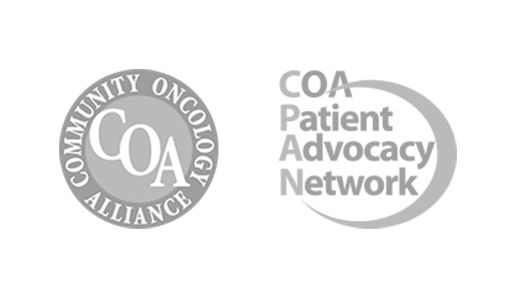There’s probably no other disease that scares human beings as much as cancer. Thankfully, there are lots of treatment options popping up that make it easier to beat cancer and get healthy again.
Two of these are immunotherapy and chemotherapy. But is immunotherapy the same as chemotherapy? Not really.
Both treatments aim to combat cancer, but they operate through fundamentally different mechanisms. Understanding these differences is crucial for patients, caregivers, and anyone interested in modern oncology.
This article delves into what sets immunotherapy apart from chemotherapy, highlighting their unique approaches, benefits, and side effects.
Understanding Chemotherapy
Chemotherapy, often simply referred to as “chemo,” is one of the oldest and most well-known cancer treatments. It involves the use of drugs to kill rapidly dividing cells, a hallmark characteristic of cancer. Chemotherapy drugs circulate throughout the body and target cells that are in the process of dividing and multiplying.
Mechanism of Action
Chemotherapy drugs attack cancer cells at various stages of their growth cycle. Some drugs interfere with DNA replication, while others prevent cell division.
Because these drugs target rapidly dividing cells, they can also affect healthy cells that divide quickly, such as those in the bone marrow, digestive tract, and hair follicles. This non-specific action leads to the well-known side effects of chemotherapy, including hair loss, nausea, and increased susceptibility to infections.
Types of Chemotherapy
There are many types of chemotherapy drugs, often used in combination to enhance effectiveness and reduce resistance. Alkylating agents, antimetabolites, and topoisomerase inhibitors are a few examples. Each comes with a specific mode of action to disrupt cancer cell growth.
Benefits and Challenges
The primary benefit of chemotherapy is its ability to shrink tumors and kill cancer cells throughout the body. This makes it useful for treating metastatic cancers.
However, its broad attack on dividing cells also means it can severely impact the body’s normal functioning. This could lead to significant side effects and impact patients’ quality of life.
Understanding Immunotherapy
Immunotherapy represents a newer frontier in cancer treatment. Unlike chemotherapy, which directly attacks cancer cells, immunotherapy harnesses the body’s immune system to identify and combat cancer cells more effectively.
Mechanism of Action
The immune system naturally recognizes and eliminates abnormal cells, including cancerous ones. However, cancer cells often develop mechanisms to evade immune detection.
Immunotherapy drugs work by enhancing the immune system’s ability to recognize and destroy cancer cells. This can involve stimulating the overall activity of the immune system or targeting specific checkpoints that cancer cells use to hide from immune attacks.
Types of Immunotherapy
Checkpoint Inhibitors are drugs, such as pembrolizumab and nivolumab. They block proteins that prevent immune cells from attacking cancer cells.
CAR T-cell therapy involves modifying a patient’s T-cells to better recognize and attack cancer cells.
Cytokines are proteins like interleukins and interferons that boost the immune response against cancer.
Cancer Vaccines are designed to prompt the immune system to target cancer cells more effectively.
Benefits and Challenges
Immunotherapy can provide long-lasting protection against cancer by “teaching” the immune system to remember and attack cancer cells if they return. It tends to be more targeted than chemotherapy, often resulting in fewer side effects.
However, not all patients respond to immunotherapy. It can sometimes cause the immune system to attack healthy tissues, leading to autoimmune-like side effects.
Comparing Immunotherapy and Chemotherapy
There are many ways in which the two treatments are different. Patients need to consider the points below to decide in favor of one or the other.
Specificity and Mode of Action
Chemotherapy attacks all rapidly dividing cells, while immunotherapy specifically enhances the immune system’s ability to target cancer cells. This fundamental difference means that chemotherapy can affect a broader range of cells. This leads to more widespread side effects, whereas immunotherapy tends to be more targeted.
Side Effects
Chemotherapy side effects are well-documented and include nausea, hair loss, and increased infection risk due to its impact on healthy, rapidly dividing cells.
Immunotherapy’s side effects can vary but often involve immune-related reactions such as skin rashes, diarrhea, and inflammation of organs like the liver or lungs. While immunotherapy generally has fewer immediate side effects, it can lead to severe long-term immune complications.
Effectiveness
The effectiveness of both treatments varies depending on the type and stage of cancer. Chemotherapy is often effective for quickly shrinking tumors and addressing widespread cancer.
Immunotherapy, however, has shown remarkable success in some cancers, such as melanoma and certain types of lung cancer, where it has provided long-term remission in cases where other treatments have failed.
Personalization of Treatment
Immunotherapy offers more opportunities for personalized treatment. For example, CAR T-cell therapy involves tailoring the treatment to the individual’s immune cells. Chemotherapy, while sometimes adjusted in dosage, is generally less personalized and more uniform in its application.
Long-Term Outcomes
By harnessing the immune system, which has memory capabilities, immunotherapy can sometimes lead to lasting remission even after the treatment has ended. Chemotherapy, on the other hand, typically requires ongoing cycles and often leads to relapse once the treatment stops.
The Future of Cancer Treatment
Advanced cancer therapies are likely to involve a combination of therapies, utilizing the strengths of both chemotherapy and immunotherapy. Combination therapies can target different aspects of cancer growth and survival, potentially leading to more effective treatment protocols.
Patient Empowerment
As treatments evolve, patient education becomes increasingly important. Understanding the differences between chemotherapy and immunotherapy, their benefits, and potential side effects empowers patients to make informed decisions about their treatment options.
Is Immunotherapy the Same as Chemotherapy?
There are many differences between the two cancer treatment options above. The question, “Is immunotherapy the same as chemotherapy” is easily answered.
It isn’t the same, and patients should look at both with clarity and discernment to make the right decision. Need more help with this?
AO Multispecialty Clinic has an oncology treatments department that offers specialized quality healthcare in a community-based center. Request an appointment for a new patient referral or to ask any questions you might have. This way you can make an informed decision.





